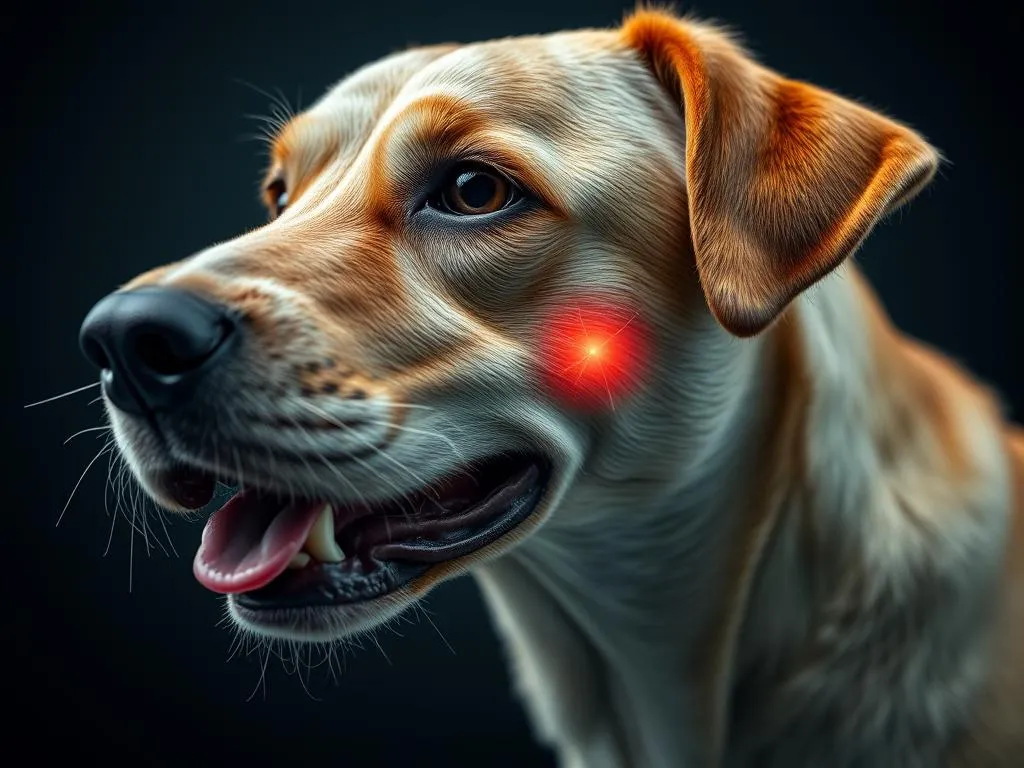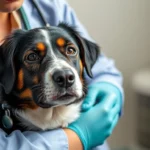
Vaccinations are an essential part of maintaining your dog’s health, but like any medical intervention, they can sometimes lead to vaccine reactions in dogs. Understanding these reactions is crucial for every dog owner. This guide will help you navigate the complexities of vaccine reactions, ensuring you’re well-informed and prepared.
Understanding Vaccine Reactions
What Are Vaccine Reactions?
Vaccine reactions refer to the adverse responses that some dogs may experience following vaccination. These reactions can vary significantly in severity and presentation. Generally, reactions are classified as either mild or severe:
- Mild Reactions: These are common and usually resolve on their own without any treatment.
- Severe Reactions: Although rare, these reactions can pose serious health risks and require immediate veterinary attention.
Common Symptoms of Vaccine Reactions
Recognizing the symptoms of vaccine reactions in dogs is vital. Here’s a detailed list of signs to watch for:
- Swelling or pain at the injection site
- Fever (typically above 102.5°F)
- Lethargy or decreased activity
- Loss of appetite
- Vomiting or diarrhea
- Hives or skin rashes
- Difficulty breathing or coughing
Symptoms can appear within a few hours to several days post-vaccination. Most mild reactions occur within 24 hours, while some may take longer to manifest.
Factors Influencing Vaccine Reactions
Several factors can influence whether a dog will experience a reaction to vaccination:
- Age: Younger puppies and older dogs may be more susceptible.
- Health Status: Dogs with pre-existing health conditions, allergies, or weakened immune systems may be at higher risk.
- Types of Vaccines: Core vaccines (like rabies and distemper) are essential for all dogs, while non-core vaccines may vary based on lifestyle and risk factors.
- Previous Vaccination History: Dogs that have had reactions to vaccines in the past may be more likely to have similar reactions in the future.
Types of Vaccine Reactions
Mild Reactions
Mild reactions are generally harmless and can include:
- Soreness or swelling at the injection site
- Low-grade fever
- Reduced appetite for a day or two
These reactions are usually expected and resolve on their own. For mild symptoms, provide your dog with a comfortable resting place and monitor them for any changes. You can also apply a cold compress to the injection site to alleviate swelling.
Moderate Reactions
Moderate reactions may include:
- Allergic reactions such as hives or localized swelling
- Increased lethargy that lasts longer than 24 hours
If you notice any of these symptoms, it’s essential to keep a close eye on your dog. In most cases, moderate reactions will resolve with time, but you should consult your veterinarian if symptoms persist or worsen.
Severe Reactions
Severe reactions are less common but can be life-threatening. Symptoms include:
- Anaphylaxis: A severe allergic reaction characterized by difficulty breathing, swelling of the face or neck, vomiting, and collapse.
- Severe lethargy or unresponsiveness.
If your dog exhibits any signs of a severe reaction, seek emergency veterinary care immediately. Timely intervention is crucial to ensure your dog’s safety.
What to Do If Your Dog Has a Vaccine Reaction
Immediate Steps to Take
If you suspect your dog is experiencing a vaccine reaction, assess the severity of the symptoms:
- Mild Symptoms: Monitor your dog at home, ensuring they are comfortable and can rest.
- Moderate Symptoms: Contact your veterinarian for advice.
- Severe Symptoms: Seek emergency veterinary care without delay.
Home Care for Mild Reactions
For dogs with mild reactions, here are some management tips:
- Ensure your dog has a quiet, comfortable space to rest.
- Offer small amounts of water or bland food if they are not eating.
- Monitor their temperature and behavior closely.
While over-the-counter medications should only be given under veterinary guidance, some owners may consider natural remedies for mild symptoms. Always consult your vet before administering any treatment.
When to Seek Veterinary Help
Recognizing when to seek veterinary care can make a significant difference in your dog’s health. Indicators of serious reactions include:
- Persistent vomiting or diarrhea
- Signs of anaphylaxis (swelling, difficulty breathing, collapse)
- Lethargy lasting more than 24 hours
If in doubt, always err on the side of caution and contact your veterinarian.
Preventing Vaccine Reactions
Choosing the Right Vaccines
Not all vaccines are necessary for every dog. Discussing core and non-core vaccines with your veterinarian can help create a tailored vaccination plan that minimizes risk while ensuring your dog remains protected.
- Core Vaccines: Essential for all dogs (e.g., rabies, parvovirus).
- Non-Core Vaccines: Based on lifestyle and risk factors (e.g., Bordetella, Lyme disease).
Pre-vaccination Considerations
Before vaccination, consider the following:
- Health Screening: Ensure your dog is in good health prior to vaccination. A veterinary check-up can identify any underlying issues.
- Vaccination History: Keep a record of your dog’s vaccination history, including any previous reactions, to inform your veterinarian.
Post-vaccination Monitoring
Post-vaccination monitoring is crucial. It’s recommended to keep an eye on your dog for several hours after receiving a vaccine to catch any immediate reactions. Watch for:
- Changes in behavior
- Signs of discomfort or pain
- Symptoms listed earlier in this article
Frequently Asked Questions (FAQs)
Are all dogs at risk for vaccine reactions?
Not all dogs are equally at risk. Factors such as breed, age, and existing health conditions can influence the likelihood of experiencing vaccine reactions in dogs. Generally, dogs with a history of allergies or previous reactions may be at a greater risk.
Can vaccine reactions be prevented?
While it may not be possible to completely eliminate the risk of vaccine reactions, certain preventive measures can help. Consulting with your veterinarian to develop a personalized vaccination plan based on your dog’s health and lifestyle can significantly reduce the likelihood of adverse reactions.
What to do if my dog has had a reaction in the past?
If your dog has experienced a vaccine reaction, inform your veterinarian before subsequent vaccinations. They may recommend alternative vaccination schedules or pre-treatment options to minimize the risk of future reactions.
Conclusion
Understanding vaccine reactions in dogs is essential for every dog owner. While most reactions are mild and resolve independently, recognizing the signs and knowing how to respond can make a significant difference in your pet’s well-being. Vaccinations are crucial for preventing serious diseases, but it’s equally important to be prepared and informed. Always consult with your veterinarian for personalized advice tailored to your dog’s health needs.









